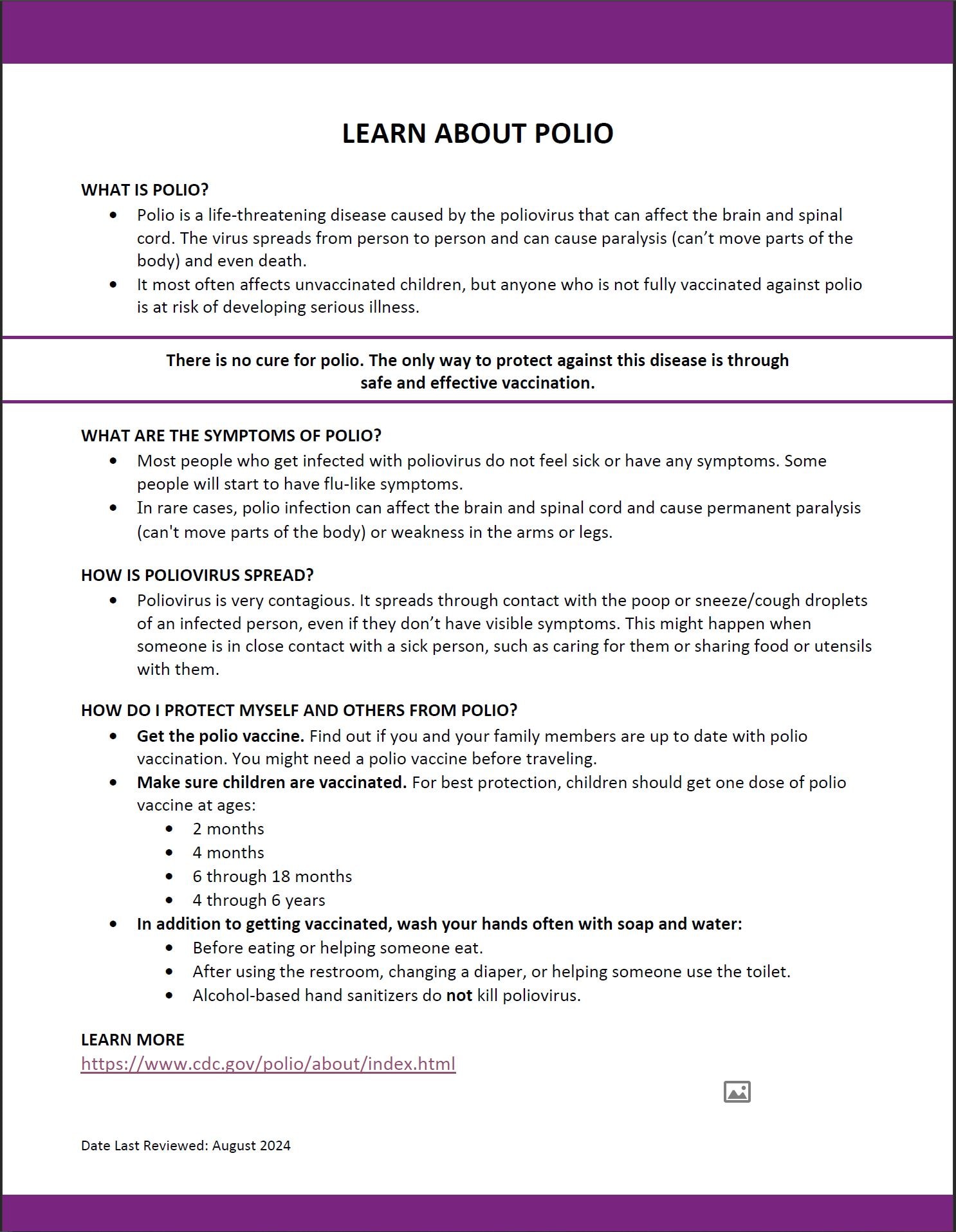Key points
- Polio is a life-threatening disease with no cure that can cause paralysis and even death.
- Anyone who is not fully vaccinated against polio is at risk of developing serious illness.
- Download this brandable fact sheet to raise awareness about the importance of getting polio vaccination.
Text equivalent
Learn About Polio
What is polio?
- Polio is a life-threatening disease caused by the poliovirus that can affect the brain and spinal cord. The virus spreads from person to person and can cause paralysis (can’t move parts of the body) and even death.
- It most often affects unvaccinated children, but anyone who is not fully vaccinated against polio is at risk of developing serious illness.
There is no cure for polio. The only way to protect against this disease is through safe and effective vaccination.
What are the symptoms of polio?
- Most people who get infected with poliovirus do not feel sick or have any symptoms. Some people will start to have flu-like symptoms.
- In rare cases, polio infection can affect the brain and spinal cord and cause permanent paralysis (can't move parts of the body) or weakness in the arms or legs.
How is poliovirus spread?
Poliovirus is very contagious. It spreads through contact with the poop or sneeze/cough droplets of an infected person, even if they don’t have visible symptoms. This might happen when someone is in close contact with a sick person, such as caring for them or sharing food or utensils with them.
How do I protect myself and others from polio?
- Get the polio vaccine. Find out if you and your family members are up to date with polio vaccination. You might need a polio vaccine before traveling.
- Make sure children are vaccinated. For best protection, children should get one dose of polio vaccine at ages:
- 2 months
- 4 months
- 6 through 18 months
- 4 through 6 years
- 2 months
- In addition to getting vaccinated, wash your hands often with soap and water:
- Before eating or helping someone eat.
- After using the restroom, changing a diaper, or helping someone use the toilet.
- Alcohol-based hand sanitizers do not kill poliovirus.
- Before eating or helping someone eat.
Learn more: https://www.cdc.gov/polio/about/index.html

